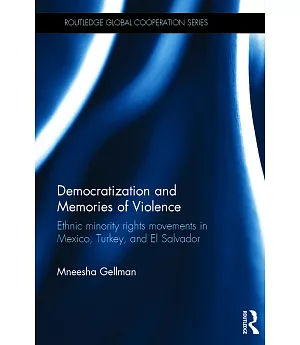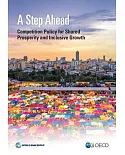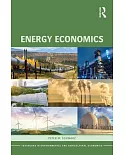This book examines ethnic minority mobilizations for cultural rights and asks: how, why, and under what conditions do violence-affected ethnic minority communities mobilize for increased cultural rights? In addition, how do memories of violence interact with state policies and practices that affect the ways minorities claim cultural, and more specifically, linguistic rights? The book addresses three themes that combine theory with empirics. First, the book accounts for how democratization shapes citizen experiences of interest representation in spaces other than the electoral arena. During democratization, when states are more invested in cooperating with their citizens, memory-based narratives serve as emotionally salient leverage for marginalized communities negotiating rights protections. These often intense rights negotiatons are critical precursors to civil-society-state cooperation, as the philosophical disconnect between the goals of each side can be large. Second, the book explains how memorialization processes challenge regimes of forgetting and instead foster cooperation for cultural rights at local, state, and international levels. Third, the book compares dynamics between communities and states that contribute to the discourse on multiculturalism and pluriethnicity in comparative politics.
Six case studies illustrate the role of memory in post-violence ethnic minority social movements. Despite many common characteristics – such as democratizing political regimes and legacies of state and paramilitary persecution – Tzotzil and Triqui communities in Mexico, Alevi Kurds and Armenians in Turkey, and Nahua and Lenca people in El Salvador show great diversity in their shaming and claiming mobilizations. Highly mobilized communities, those that vocally demand state recognition and funding for minority cultural projects, generally use narratives about historic violence to press their cases. As a result, such communities often use visible protests rather than institutional claim-making tactics. By contrast, less mobilized communities produce weaker narratives about past violence, enjoy higher levels of state inclusion, and tend to use institutional channels for claim-making, such as voting. Some cases occupy the middle ground, with neither the broadly appealing narratives of highly mobilized cases, nor the assimilation and institutional capture of less mobilized cases. This book explores narratives of shaming and claiming in six case studies to show how memory matters in civil society-state negotiations, and the manner in which ethnic minority citizen rights are included in democratization processes.
Though previous scholarly works have examined ethnic minority social movements, civil society-state cooperation, narrative, and memory politics, this book makes a unique contribution because it develops an interdisciplinary social science framework that brings together themes from comparative politics and democratization studies with those of cultural studies. In doing so, the book presents causal logic to analyze the power of memory in ways that are often confined to anthropology and the humanities. By bridging disciplinary divides, the book adds a new layer of complexity to arguments about collective action by including memory as a tool of shaming and claiming.





















